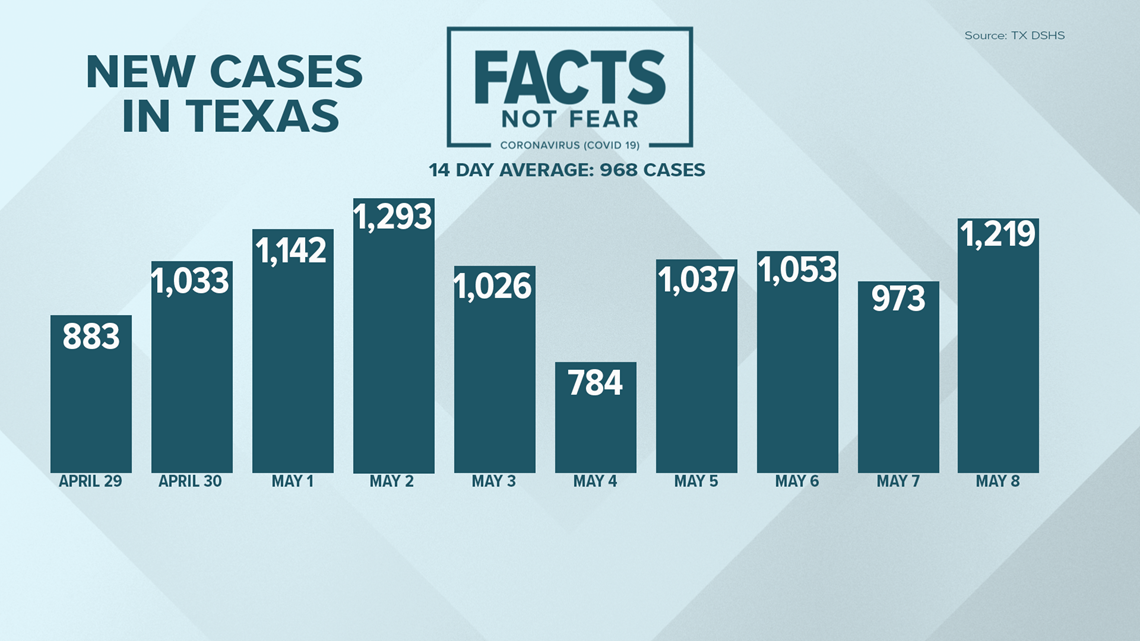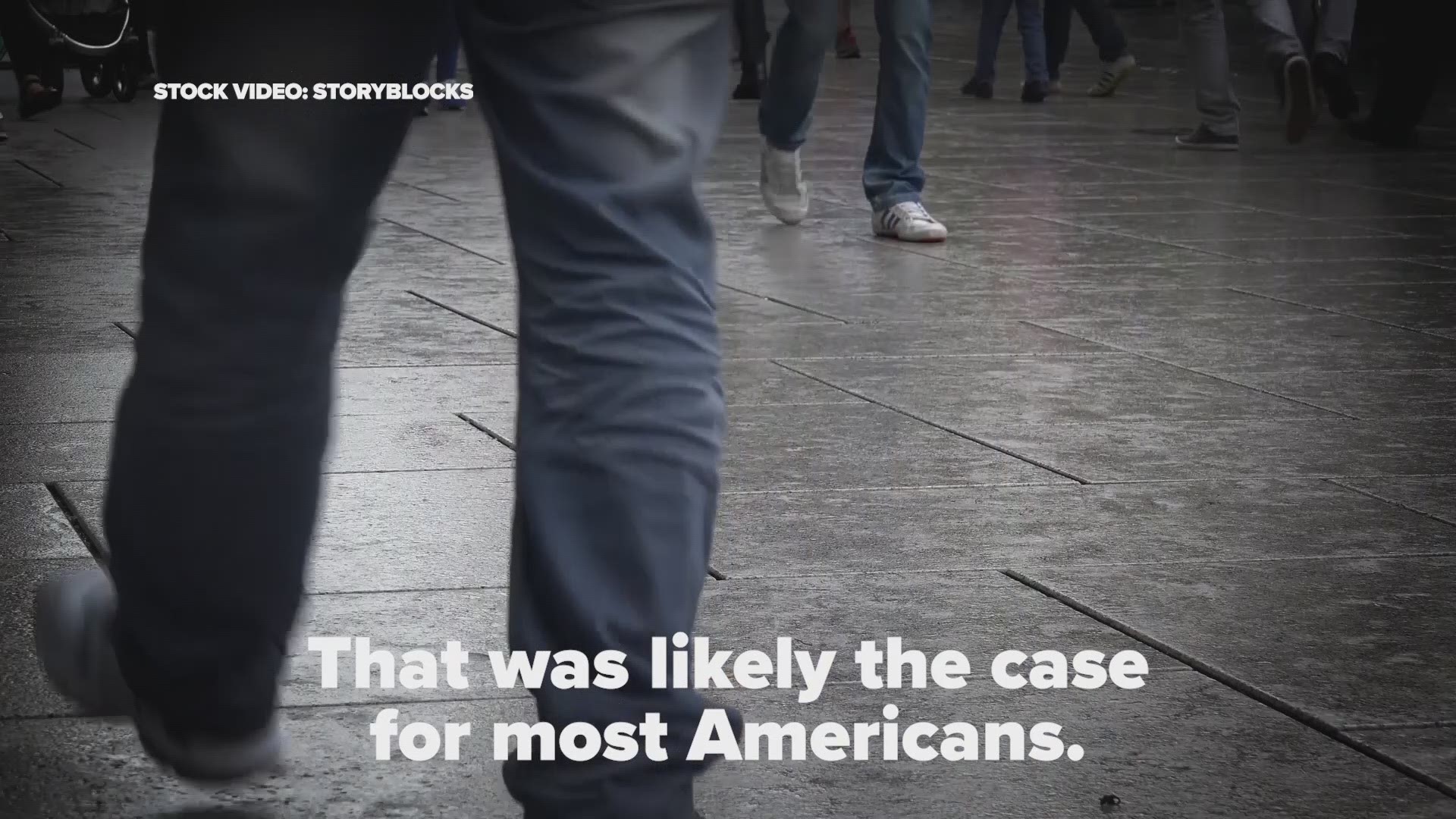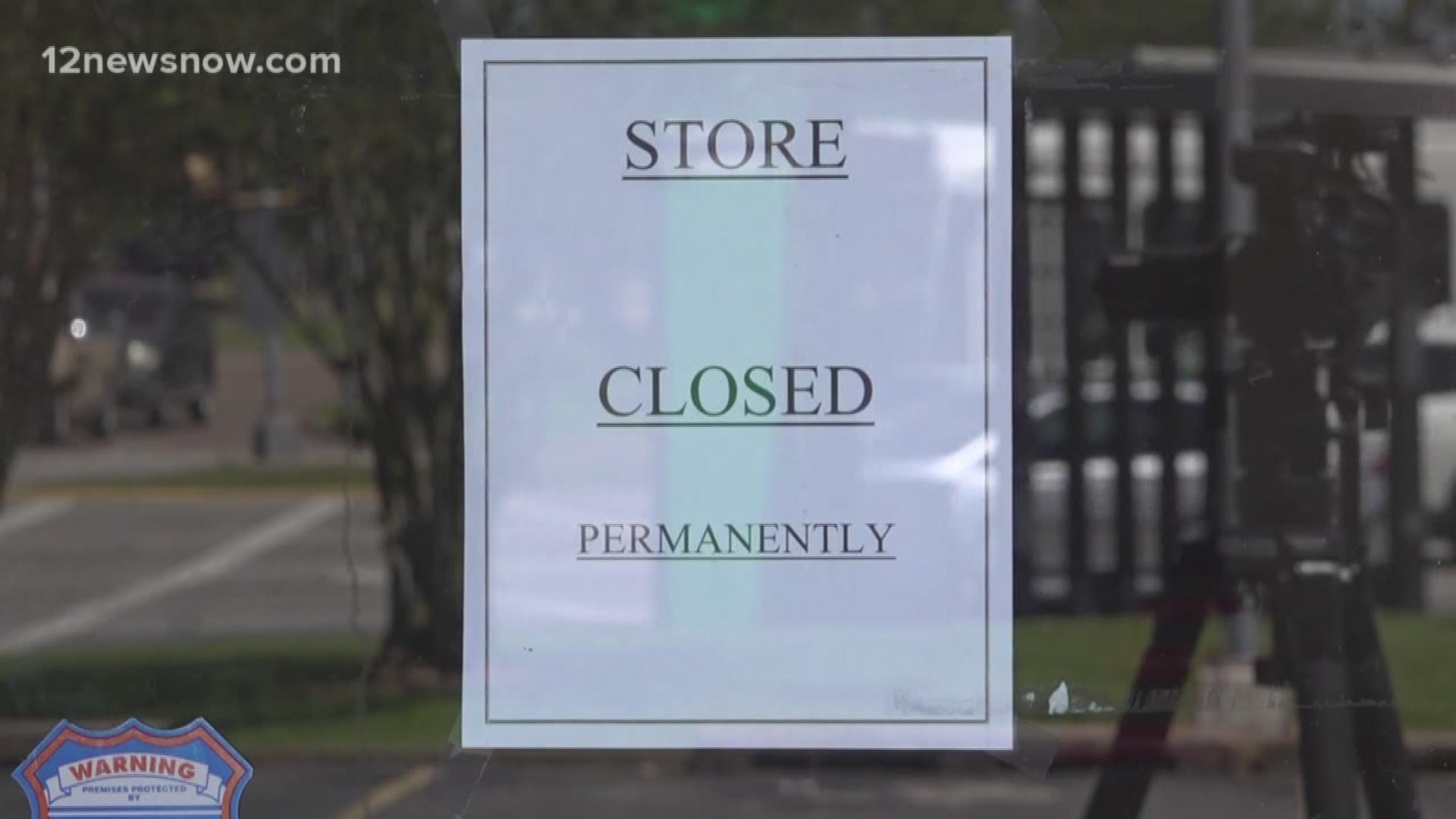TEXAS, USA — 1,004.
More than one thousand people in Texas have lost their lives from COVID-19. The state reported 31 new fatalities on Friday.
The grim milestone comes as more businesses open up across the Lone Star state, including salons and barbershops.
In Texas, there have been more than one thousand new cases of COVID-19 reported in five of the last seven days and seven of the last 14 days. On Friday, 1,219 new cases of coronavirus were reported across Texas.
According to the COVID Tracking Project, more than a dozen states have already passed the threshold of 1,000 deaths, including Connecticut and New Jersey, whose populations are dwarfed by Texas’.


“I don’t know that we will ever be able to go back with any specificity and capture every COVID-19 death,” said Angela Clendenin, an epidemiologist and biostatistician at Texas A&M University School of Public Health. “We’re getting closer, as far as our ability to be accurate with cause of death, but there will always be a gap.”
As the state proceeds into a second phase of economic reopening, Texas has confirmed 36,609 cases of the novel coronavirus and performed 477,118 tests, according to the latest state data.
But experts say that morbid marker may actually have come days or weeks ago, pointing to numerous indicators that deaths related to the virus have been severely undercounted, largely due to scarce testing.
“It’s not an accurate count at all,” Mark Hayward, a mortality statistics expert at the University of Texas at Austin, said of the official state figures. “There are a lot of deaths, probably, in Texas that were never identified as COVID-related deaths.”
The state’s first known victim of the virus, Eddie F. Roberts, died March 15. The 97-year-old mortician spent decades burying his neighbors in rural Matagorda County.
The Texas Tribune contributed to the reporting in this story. You can read their full story HERE.
SIGN UP FOR BREAKING NEWS ALERTS with the 12News Now App | Sign up for the 12News Morning Rush newsletter
Coronavirus symptoms
The symptoms of coronavirus can be similar to the flu or a bad cold. Symptoms include a fever, cough and shortness of breath, according to the Centers for Disease Control. Some patients also have nausea, body aches, headaches and stomach issues. Losing your sense of taste and/or smell can also be an early warning sign.
Most healthy people will have mild symptoms. A study of more than 72,000 patients by the Centers for Disease Control in China showed 80 percent of the cases there were mild.
But infections can cause pneumonia, severe acute respiratory syndrome, kidney failure and even death, according to the World Health Organization. Older people with underlying health conditions are most at risk for becoming seriously ill. However, U.S. experts are seeing a significant number of younger people being hospitalized, including some in ICU.
The CDC believes symptoms may appear anywhere from two to 14 days after being exposed.
Human coronaviruses are usually spread through...
- The air by coughing or sneezing
- Close personal contact, such as touching or shaking hands
- Touching an object or surface with the virus on it, then touching your mouth, nose or eyes before washing your hands.
Help stop the spread of coronavirus
- Stay home when you are sick.
- Eat and sleep separately from your family members
- Use different utensils and dishes
- Cover your cough or sneeze with your arm, not your hand.
- If you use a tissue, throw it in the trash.
- Follow social distancing
Lower your risk
- Wash your hands often with soap and water for at least 20 seconds. If soap and water are not available, use an alcohol-based hand sanitizer.
- Avoid touching your eyes, nose, and mouth with unwashed hands.
- Avoid close contact with people who are sick.
- Clean and disinfect frequently touched objects and surfaces.
- If you are 60 or over and have an underlying health condition such as cardiovascular disease, diabetes or respiratory illnesses like asthma or COPD, the World Health Organization advises you to try to avoid crowds or places where you might interact with people who are sick.
Get complete coverage of the coronavirus by texting 'FACTS' to 409-838-1212.


